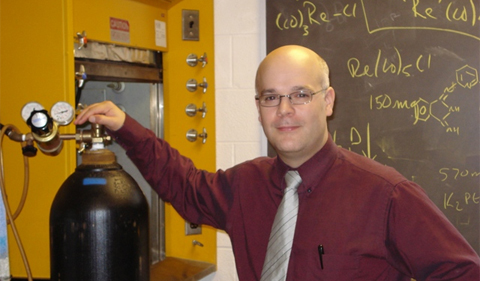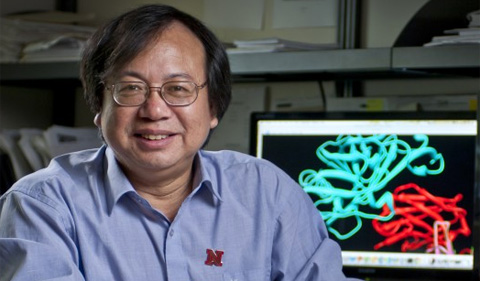
Dr. Christopher Ziegler
Ohio University’s Chemistry & Biochemistry Colloquium Series presents Dr. Christopher Ziegler on“Xenobiotic Bioorganometallics: Non-Natural Metals in Living Organisms” on Monday, Feb. 20, at 4:10 p.m. in Clippinger Laboratories 194.
Abstract: The incorporation of organometallic groups into biological systems is a rapidly growing area of investigation. However, since the chemistries of organometallic complexes and biological systems historically have had little overlap, there is much need for the development of methods to synthesize conjugates of non-naturally occurring (xenobiotic) organometallic complexes and macromolecules. In our labs, we have been working for some time on the chemistry of Re(CO)3 based compounds, and originally this work was intended to model compounds containing the radionuclide moiety 99mTc(CO)3. However, interest in metal carbonyl compounds has increased due to their uses as biological probes, their structural relationships to the CORM (carbon monoxide releasing molecule) drugs, and as scaffolds to understand hydrogen bonding in peptides. More unusual and innovative work, such as the development of protein-conjugated organometallic catalysts, is also being actively investigated by some groups. However, in spite of this increased interest, the methods for the selective modification of proteins and peptides with organometallic reagents remain limited. This talk will present our work on developing new techniques for the selective covalent modification of biomolecules, such as polypeptides and proteins, with organometallic units, ranging from the Re(CO)3 moiety to metallocenes such as ferrocene.
Ziegler is Professor and Chair, Inorganic, Bioinorganic and Materials Chemistry at the University of Akron.



















Comments